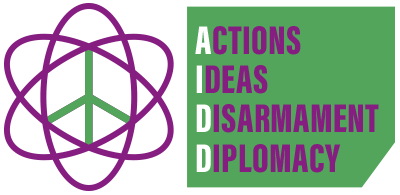by ICAN
The United Nations today adopted a landmark resolution to launch negotiations in 2017 on a treaty outlawing nuclear weapons. This historic decision heralds an end to two decades of paralysis in multilateral nuclear disarmament efforts.
At a meeting of the First Committee of the UN General Assembly, which deals with disarmament and international security matters, 123 nations voted in favour of the resolution, with 38Â against and 16 abstaining.
The resolution will set up a UN conference beginning in March next year, open to all member states, to negotiate a “legally binding instrument to prohibit nuclear weapons, leading towards their total eliminationâ€. The negotiations will continue in June and July.
The International Campaign to Abolish Nuclear Weapons (ICAN), a civil society coalition active in 100 countries, hailed the adoption of the resolution as a major step forward, marking a fundamental shift in the way that the world tackles this paramount threat.
“For seven decades, the UN has warned of the dangers of nuclear weapons, and people globally have campaigned for their abolition. Today the majority of states finally resolved to outlaw these weapons,†said Beatrice Fihn, executive director of ICAN.
Despite arm-twisting by a number of nuclear-armed states, the resolution was adopted in a landslide. A total of 57 nations were co-sponsors, with Austria, Brazil, Ireland, Mexico, Nigeria and South Africa taking the lead in drafting the resolution.
The UN vote came just hours after the European Parliament adopted its own resolution on this subject – 415 in favour and 124 against, with 74 abstentions – inviting European Union member states to “participate constructively†in next year’s negotiations.
Nuclear weapons remain the only weapons of mass destruction not yet outlawed in a comprehensive and universal manner, despite their well-documented catastrophic humanitarian and environmental impacts.
“A treaty prohibiting nuclear weapons would strengthen the global norm against the use and possession of these weapons, closing major loopholes in the existing international legal regime and spurring long-overdue action on disarmament,†said Fihn.
“Today’s vote demonstrates very clearly that a majority of the world’s nations consider the prohibition of nuclear weapons to be necessary, feasible and urgent. They view it as the most viable option for achieving real progress on disarmament,†she said.
Biological weapons, chemical weapons, anti-personnel landmines and cluster munitions are all explicitly prohibited under international law. But only partial prohibitions currently exist for nuclear weapons.
Nuclear disarmament has been high on the UN agenda since the organization’s formation in 1945. Efforts to advance this goal have stalled in recent years, with nuclear-armed nations investing heavily in the modernization of their nuclear forces.
Twenty years have passed since a multilateral nuclear disarmament instrument was last negotiated: the 1996 Comprehensive Nuclear-Test-Ban Treaty, which has yet to enter into legal force due to the opposition of a handful of nations.
Today’s resolution, known as L.41, acts upon the key recommendation of a UN working group on nuclear disarmament that met in Geneva this year to assess the merits of various proposals for achieving a nuclear-weapon-free world.
See full article here.
